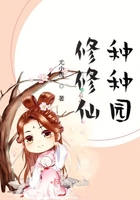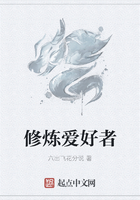THE carrier's horse was the laziest horse in the world, I should hope, and shuffled along, with his head down, as if he liked to keep people waiting to whom the packages were directed. I fancied, indeed, that he sometimes chuckled audibly over this reflection, but the carrier said he was only troubled with a cough. The carrier had a way of keeping his head down, like his horse, and of drooping sleepily forward as he drove, with one of his arms on each of his knees. I say'drove', but it struck me that the cart would have gone to Yarmouth quite as well without him, for the horse did all that; and as to conversation, he had no idea of it but whistling.
Peggotty had a basket of refreshments on her knee, which would have lasted us out handsomely, if we had been going to London by the same conveyance. We ate a good deal, and slept a good deal. Peggotty always went to sleep with her chin upon the handle of the basket, her hold of which never relaxed; and I could not have believed unless I had heard her do it, that one defenceless woman could have snored so much.
We made so many deviations up and down lanes, and were such a long time delivering a bedstead at a public-house, and calling at other places, that I was quite tired, and very glad, when we saw Yarmouth. It looked rather spongy and soppy, I thought, as I carried my eye over the great dull waste that lay across the river; and I could not help wondering, if the world were really as round as my geography book said, how any part of it came to be so flat. But I reflected that Yarmouth might be situated at one of the poles; which would account for it.
As we drew a little nearer, and saw the whole adjacent prospect lying a straight low line under the sky, I hinted to Peggotty that a mound or so might have improved it; and also that if the land had been a little more separated from the sea, and the town and the tide had not been quite so much mixed up, like toast and water, it would have been nicer. But Peggotty said, with greater emphasis than usual, that we must take things as we found them, and that, for her part, she was proud to call herself a Yarmouth Bloater.
When we got into the street (which was strange enough to me) and smelt the fish, and pitch, and oakum, and tar, and saw the sailors walking about, and the carts jingling up and down over the stones, I felt that I had done so busy a place an injustice; and said as much to Peggotty, who heard my expressions of delight with great complacency, and told me it was well known (I suppose to those who had the good fortune to be born Bloaters) that Yarmouth was, upon the whole, the finest place in the universe.
'Here's my Am!'screamed Peggotty,'growed out of knowledge!'
He was waiting for us, in fact, at the public-house; and asked me how I found myself, like an old acquaintance. I did not feel, at first, that I knew him as well as he knew me, because he had never come to our house since the night I was born, and naturally he had the advantage of me. But our intimacy was much advanced by his taking me on his back to carry me home. He was, now, a huge, strong fellow of six feet high, broad in proportion, and round-shouldered; but with a simpering boy's face and curly light hair that gave him quite a sheepish look. He was dressed in a canvas jacket, and a pair of such very stiff trousers that they would have stood quite as well alone, without any legs in them. And you couldn't so properly have said he wore a hat, as that he was covered in a-top, like an old building, with something pitchy.
Ham carrying me on his back and a small box of ours under his arm, and Peggotty carrying another small box of ours, we turned down lanes bestrewn with bits of chips and little hillocks of sand, and went past gas-works, rope-walks, boat-builders' yards, shipwrights' yards, ship-breakers' yards, caulkers' yards, riggers' lofts, smiths' forges, and a great litter of such places, until we came out upon the dull waste I had already seen at a distance; when Ham said,
'Yon's our house, Mas'r Davy!'
I looked in all directions, as far as I could stare over the wilderness, and away at the sea, and away at the river, but no house could I make out. There was a black barge, or some other kind of superannuated boat, not far off, high and dry on the ground, with an iron funnel sticking out of it for a chimney and smoking very cosily; but nothing else in the way of a habitation that was visible to me.
'That's not it?'said I.'That ship-looking thing?'
'That's it, Mas'r Davy,'returned Ham.
If it had been Aladdin's palace, roc's egg and all, I suppose I could not have been more charmed with the romantic idea of living in it. There was a delightful door cut in the side, and it was roofed in, and there were little windows in it; but the wonderful charm of it was, that it was a real boat which had no doubt been upon the water hundreds of times, and which had never been intended to be lived in, on dry land. That was the captivation of it to me. If it had ever been meant to be lived in, I might have thought it small, or inconvenient, or lonely; but never having been designed for any such use, it became a perfect abode.
It was beautifully clean inside, and as tidy as possible. There was a table, and a Dutch clock, and a chest of drawers, and on the chest of drawers there was a tea-tray with a painting on it of a lady with a parasol, taking a walk with a military-looking child who was trundling a hoop. The tray was kept from tumbling down, by a bible; and the tray, if it had tumbled down, would have smashed a quantity of cups and saucers and a teapot that were grouped around the book. On the walls there were some common coloured pictures, framed and glazed, of ure subjects; such as I have never seen since in the hands of pedlars, without seeing the whole interior of Peggotty's brother's house again, at one view. Abraham in red going to sacrifice Isaac in blue, and Daniel in yellow cast into a den of green lions, were the most prominent of these. Over the little mantelshelf, was a picture of the'Sarah Jane'lugger, built at Sunderland, with a real little wooden stern stuck on to it; a work of art, combining composition with carpentry, which I considered to be one of the most enviable possessions that the world could afford. There were some hooks in the beams of the ceiling, the use of which I did not divine then; and some lockers and boxes and conveniences of that sort, which served for seats and eked out the chairs.
All this I saw in the first glance after I crossed the threshold—child-like, according to my theory—and then Peggotty opened a little door and showed me my bedroom. It was the completest and most desirable bedroom ever seen—in the stern of the vessel; with a little window, where the rudder used to go through; a little looking-glass, just the right height for me, nailed against the wall, and framed with oyster-shells; a little bed, which there was just room enough to get into; and a nosegay of seaweed in a blue mug on the table. The walls were whitewashed as white as milk, and the patchwork counterpane made my eyes quite ache with its brightness. One thing I particularly noticed in this delightful house, was the smell of fish; which was so searching, that when I took out my pocket-handkerchief to wipe my nose, I found it smelt exactly as if it had wrapped up a lobster. On my imparting this discovery in confidence to Peggotty, she informed me that her brother dealt in lobsters, crabs, and crawfish; and I afterwards found that a heap of these creatures, in a state of wonderful conglomeration with one another, and never leaving off pinching whatever they laid hold of, were usually to be found in a little wooden outhouse where the pots and kettles were kept.
We were welcomed by a very civil woman in a white apron, whom I had seen curtseying at the door when I was on Ham's back, about a quarter of a mile off. Likewise by a most beautiful little girl (or I thought her so) with a necklace of blue beads on, who wouldn't let me kiss her when I offered to, but ran away and hid herself. By and by, when we had dined in a sumptuous manner off boiled dabs, melted butter, and potatoes, with a chop for me, a hairy man with a very good-natured face came home. As he called Peggotty'Lass', and gave her a hearty smack on the cheek, I had no doubt, from the general propriety of her conduct, that he was her brother; and so he turned out—being presently introduced to me as Mr. Peggotty, the master of the house.
'Glad to see you, sir,'said Mr. Peggotty.'You'll find us rough, sir, but you'll find us ready.'
I thanked him, and replied that I was sure I should be happy in such a delightful place.
'How's your Ma, sir?'said Mr. Peggotty.'Did you leave her pretty jolly?'
I gave Mr. Peggotty to understand that she was as jolly as I could wish, and that she desired her compliments—which was a polite fiction on my part.
'I'm much obleeged to her, I'm sure,'said Mr. Peggotty.'Well, sir, if you can make out here, fur a fortnut,'long wi' her,'nodding at his sister,'and Ham, and little Em'ly, we shall be proud of your company.'
Having done the honours of his house in this hospitable manner, Mr. Peggotty went out to wash himself in a kettleful of hot water, remarking that'cold would never get his muck off'. He soon returned, greatly improved in appearance; but so rubicund, that I couldn't help thinking his face had this in common with the lobsters, crabs, and crawfish,—that it went into the hot water very black, and came out very red.
After tea, when the door was shut and all was made snug (the nights being cold and misty now), it seemed to me the most delicious retreat that the imagination of man could conceive. To hear the wind getting up out at sea, to know that the fog was creeping over the desolate flat outside, and to look at the fire, and think that there was no house near but this one, and this one a boat, was like enchantment. Little Em'ly had overcome her shyness, and was sitting by my side upon the lowest and least of the lockers, which was just large enough for us two, and just fitted into the chimney corner. Mrs. Peggotty with the white apron, was knitting on the opposite side of the fire. Peggotty at her needlework was as much at home with St. Paul's and the bit of wax-candle, as if they had never known any other roof. Ham, who had been giving me my first lesson in all-fours, was trying to recollect a scheme of telling fortunes with the dirty cards, and was printing off fishy impressions of his thumb on all the cards he turned. Mr. Peggotty was smoking his pipe. I felt it was a time for conversation and confidence.
'Mr. Peggotty!'says I.
'Sir,'says he.
'Did you give your son the name of Ham, because you lived in a sort of ark?'
Mr. Peggotty seemed to think it a deep idea, but answered:
'No, sir. I never giv him no name.'
'Who gave him that name, then?'said I, putting question number two of the catechism to Mr. Peggotty.
'Why, sir, his father giv it him,'said Mr. Peggotty.
'I thought you were his father!'
'My brother Joe was his father,'said Mr. Peggotty.
'Dead, Mr. Peggotty?'I hinted, after a respectful pause.
'Drowndead,'said Mr. Peggotty.
I was very much surprised that Mr. Peggotty was not Ham's father, and began to wonder whether I was mistaken about his relationship to anybody else there. I was so curious to know, that I made up my mind to have it out with Mr. Peggotty.
'Little Em'ly,'I said, glancing at her.'She is your daughter, isn't she, Mr. Peggotty?'
'No, sir. My brother-in-law, Tom, was her father.'
I couldn't help it.'—Dead, Mr. Peggotty?'I hinted, after another respectful silence.
'Drowndead,'said Mr. Peggotty.
I felt the difficulty of resuming the subject, but had not got to the bottom of it yet, and must get to the bottom somehow. So I said:
'Haven't you ANY children, Mr. Peggotty?'
'No, master,'he answered with a short laugh.'I'm a bacheldore.'
'A bachelor!'I said, astonished.'Why, who's that, Mr. Peggotty?'pointing to the person in the apron who was knitting.
'That's Missis Gummidge,'said Mr. Peggotty.
'Gummidge, Mr. Peggotty?'
But at this point Peggotty—I mean my own peculiar Peggotty—made such impressive motions to me not to ask any more questions, that I could only sit and look at all the silent company, until it was time to go to bed. Then, in the privacy of my own little cabin, she informed me that Ham and Em'ly were an orphan nephew and niece, whom my host had at different times adopted in their childhood, when they were left destitute: and that Mrs. Gummidge was the widow of his partner in a boat, who had died very poor. He was but a poor man himself, said Peggotty, but as good as gold and as true as steel—those were her similes. The only subject, she informed me, on which he ever showed a violent temper or swore an oath, was this generosity of his; and if it were ever referred to, by any one of them, he struck the table a heavy blow with his right hand (had split it on one such occasion), and swore a dreadful oath that he would be'Gormed'if he didn't cut and run for good, if it was ever mentioned again. It appeared, in answer to my inquiries, that nobody had the least idea of the etymology of this terrible verb passive to be gormed; but that they all regarded it as constituting a most solemn imprecation.
I was very sensible of my entertainer's goodness, and listened to the women's going to bed in another little crib like mine at the opposite end of the boat, and to him and Ham hanging up two hammocks for themselves on the hooks I had noticed in the roof, in a very luxurious state of mind, enhanced by my being sleepy. As slumber gradually stole upon me, I heard the wind howling out at sea and coming on across the flat so fiercely, that I had a lazy apprehension of the great deep rising in the night. But I bethought myself that I was in a boat, after all; and that a man like Mr. Peggotty was not a bad person to have on board if anything did happen.
Nothing happened, however, worse than morning. Almost as soon as it shone upon the oyster-shell frame of my mirror I was out of bed, and out with little Em'ly, picking up stones upon the beach.
'You're quite a sailor, I suppose?'I said to Em'ly. I don't know that I supposed anything of the kind, but I felt it an act of gallantry to say something; and a shining sail close to us made such a pretty little image of itself, at the moment, in her bright eye, that it came into my head to say this.
'No,'replied Em'ly, shaking her head,'I'm afraid of the sea.'
'Afraid!'I said, with a becoming air of boldness, and looking very big at the mighty ocean.'I an't!'
'Ah! but it's cruel,'said Em'ly.'I have seen it very cruel to some of our men. I have seen it tear a boat as big as our house, all to pieces.'
'I hope it wasn't the boat that—'
'That father was drownded in?'said Em'ly.'No. Not that one, I never see that boat.'
'Nor him?'I asked her.
Little Em'ly shook her head.'Not to remember!'
Here was a coincidence! I immediately went into an explanation how I had never seen my own father; and how my mother and I had always lived by ourselves in the happiest state imaginable, and lived so then, and always meant to live so; and how my father's grave was in the churchyard near our house, and shaded by a tree, beneath the boughs of which I had walked and heard the birds sing many a pleasant morning. But there were some differences between Em'ly's orphanhood and mine, it appeared. She had lost her mother before her father; and where her father's grave was no one knew, except that it was somewhere in the depths of the sea.
'Besides,'said Em'ly, as she looked about for shells and pebbles,'your father was a gentleman and your mother is a lady; and my father was a fisherman and my mother was a fisherman's daughter, and my uncle Dan is a fisherman.'
'Dan is Mr. Peggotty, is he?'said I.
'Uncle Dan—yonder,'answered Em'ly, nodding at the boat-house.
'Yes. I mean him. He must be very good, I should think?'
'Good?'said Em'ly.'If I was ever to be a lady, I'd give him a sky-blue coat with diamond buttons, nankeen trousers, a red velvet waistcoat, a cocked hat, a large gold watch, a silver pipe, and a box of money.'
I said I had no doubt that Mr. Peggotty well deserved these treasures. I must acknowledge that I felt it difficult to picture him quite at his ease in the raiment proposed for him by his grateful little niece, and that I was particularly doubtful of the policy of the cocked hat; but I kept these sentiments to myself.
Little Em'ly had stopped and looked up at the sky in her enumeration of these articles, as if they were a glorious vision. We went on again, picking up shells and pebbles.
'You would like to be a lady?'I said.
Emily looked at me, and laughed and nodded'yes'.
'I should like it very much. We would all be gentlefolks together, then. Me, and uncle, and Ham, and Mrs. Gummidge. We wouldn't mind then, when there comes stormy weather.—Not for our own sakes, I mean. We would for the poor fishermen's, to be sure, and we'd help 'em with money when they come to any hurt.'This seemed to me to be a very satisfactory and therefore not at all improbable picture. I expressed my pleasure in the contemplation of it, and little Em'ly was emboldened to say, shyly,
'Don't you think you are afraid of the sea, now?'
It was quiet enough to reassure me, but I have no doubt if I had seen a moderately large wave come tumbling in, I should have taken to my heels, with an awful recollection of her drowned relations. However, I said'No,'and I added,'You don't seem to be either, though you say you are,'—for she was walking much too near the brink of a sort of old jetty or wooden causeway we had strolled upon, and I was afraid of her falling over.
'I'm not afraid in this way,'said little Em'ly.'But I wake when it blows, and tremble to think of Uncle Dan and Ham and believe I hear 'em crying out for help. That's why I should like so much to be a lady. But I'm not afraid in this way. Not a bit. Look here!'
She started from my side, and ran along a jagged timber which protruded from the place we stood upon, and overhung the deep water at some height, without the least defence. The incident is so impressed on my remembrance, that if I were a draughtsman I could draw its form here, I dare say, accurately as it was that day, and little Em'ly springing forward to her destruction (as it appeared to me), with a look that I have never forgotten, directed far out to sea.
The light, bold, fluttering little figure turned and came back safe to me, and I soon laughed at my fears, and at the cry I had uttered; fruitlessly in any case, for there was no one near. But there have been times since, in my manhood, many times there have been, when I have thought, Is it possible, among the possibilities of hidden things, that in the sudden rashness of the child and her wild look so far off, there was any merciful attraction of her into danger, any tempting her towards him permitted on the part of her dead father, that her life might have a chance of ending that day? There has been a time since when I have wondered whether, if the life before her could have been revealed to me at a glance, and so revealed as that a child could fully comprehend it, and if her preservation could have depended on a motion of my hand, I ought to have held it up to save her. There has been a time since—I do not say it lasted long, but it has been—when I have asked myself the question, would it have been better for little Em'ly to have had the waters close above her head that morning in my sight; and when I have answered Yes, it would have been.
This may be premature. I have set it down too soon, perhaps. But let it stand.
We strolled a long way, and loaded ourselves with things that we thought curious, and put some stranded starfish carefully back into the water—I hardly know enough of the race at this moment to be quite certain whether they had reason to feel obliged to us for doing so, or the reverse—and then made our way home to Mr. Peggotty's dwelling. We stopped under the lee of the lobster-outhouse to exchange an innocent kiss, and went in to breakfast glowing with health and pleasure.
'Like two young mavishes,'Mr. Peggotty said. I knew this meant, in our local dialect, like two young thrushes, and received it as a compliment.
Of course I was in love with little Em'ly. I am sure I loved that baby quite as truly, quite as tenderly, with greater purity and more disinterestedness, than can enter into the best love of a later time of life, high and ennobling as it is. I am sure my fancy raised up something round that blue-eyed mite of a child, which etherealized, and made a very angel of her. If, any sunny forenoon, she had spread a little pair of wings and flown away before my eyes, I don't think I should have regarded it as much more than I had had reason to expect.
We used to walk about that dim old flat at Yarmouth in a loving manner, hours and hours. The days sported by us, as if Time had not grown up himself yet, but were a child too, and always at play. I told Em'ly I adored her, and that unless she confessed she adored me I should be reduced to the necessity of killing myself with a sword. She said she did, and I have no doubt she did.
As to any sense of inequality, or youthfulness, or other difficulty in our way, little Em'ly and I had no such trouble, because we had no future. We made no more provision for growing older, than we did for growing younger. We were the admiration of Mrs. Gummidge and Peggotty, who used to whisper of an evening when we sat, lovingly, on our little locker side by side,'Lor! wasn't it beautiful!'Mr. Peggotty smiled at us from behind his pipe, and Ham grinned all the evening and did nothing else. They had something of the sort of pleasure in us, I suppose, that they might have had in a pretty toy, or a pocket model of the Colosseum.
I soon found out that Mrs. Gummidge did not always make herself so agreeable as she might have been expected to do, under the circumstances of her residence with Mr. Peggotty. Mrs. Gummidge's was rather a fretful disposition, and she whimpered more sometimes than was comfortable for other parties in so small an establishment. I was very sorry for her; but there were moments when it would have been more agreeable, I thought, if Mrs. Gummidge had had a convenient apartment of her own to retire to, and had stopped there until her spirits revived.
Mr. Peggotty went occasionally to a public-house called The Willing Mind. I discovered this, by his being out on the second or third evening of our visit, and by Mrs. Gummidge's looking up at the Dutch clock, between eight and nine, and saying he was there, and that, what was more, she had known in the morning he would go there.
Mrs. Gummidge had been in a low state all day, and had burst into tears in the forenoon, when the fire smoked.'I am a lone lorn creetur','were Mrs. Gummidge's words, when that unpleasant occurrence took place,'and everythink goes contrary with me.'
'Oh, it'll soon leave off,'said Peggotty—I again mean our Peggotty—'and besides, you know, it's not more disagreeable to you than to us.'
'I feel it more,'said Mrs. Gummidge.
It was a very cold day, with cutting blasts of wind. Mrs. Gummidge's peculiar corner of the fireside seemed to me to be the warmest and snuggest in the place, as her chair was certainly the easiest, but it didn't suit her that day at all. She was constantly complaining of the cold, and of its occasioning a visitation in her back which she called'the creeps'. At last she shed tears on that subject, and said again that she was'a lone lorn creetur'and everythink went contrary with her'.
'It is certainly very cold,'said Peggotty.'Everybody must feel it so.'
'I feel it more than other people,'said Mrs. Gummidge.
So at dinner; when Mrs. Gummidge was always helped immediately after me, to whom the preference was given as a visitor of distinction. The fish were small and bony, and the potatoes were a little burnt. We all acknowledged that we felt this something of a disappointment; but Mrs. Gummidge said she felt it more than we did, and shed tears again, and made that former declaration with great bitterness.
Accordingly, when Mr. Peggotty came home about nine o'clock, this unfortunate Mrs. Gummidge was knitting in her corner, in a very wretched and miserable condition. Peggotty had been working cheerfully. Ham had been patching up a great pair of waterboots; and I, with little Em'ly by my side, had been reading to them. Mrs. Gummidge had never made any other remark than a forlorn sigh, and had never raised her eyes since tea.
'Well, Mates,'said Mr. Peggotty, taking his seat,'and how are you?'
We all said something, or looked something, to welcome him, except Mrs. Gummidge, who only shook her head over her knitting.
'What's amiss?'said Mr. Peggotty, with a clap of his hands.'Cheer up, old Mawther!'(Mr. Peggotty meant old girl.)
Mrs. Gummidge did not appear to be able to cheer up. She took out an old black silk handkerchief and wiped her eyes; but instead of putting it in her pocket, kept it out, and wiped them again, and still kept it out, ready for use.
'What's amiss, dame?'said Mr. Peggotty.
'Nothing,'returned Mrs. Gummidge.'You've come from The Willing Mind, Dan'l?'
'Why yes, I've took a short spell at The Willing Mind tonight,'said Mr. Peggotty.
'I'm sorry I should drive you there,'said Mrs. Gummidge.
'Drive! I don't want no driving,'returned Mr. Peggotty with an honest laugh.'I only go too ready.'
'Very ready,'said Mrs. Gummidge, shaking her head, and wiping her eyes.'Yes, yes, very ready. I am sorry it should be along of me that you're so ready.'
'Along o' you! It an't along o' you!'said Mr. Peggotty.'Don't ye believe a bit on it.'
'Yes, yes, it is,'cried Mrs. Gummidge.'I know what I am. I know that I am a lone lorn creetur', and not only that everythink goes contrary with me, but that I go contrary with everybody. Yes, yes. I feel more than other people do, and I show it more. It's my misfortun'.'
I really couldn't help thinking, as I sat taking in all this, that the misfortune extended to some other members of that family besides Mrs. Gummidge. But Mr. Peggotty made no such retort, only answering with another entreaty to Mrs. Gummidge to cheer up.
'I an't what I could wish myself to be,'said Mrs. Gummidge.'I am far from it. I know what I am. My troubles has made me contrary. I feel my troubles, and they make me contrary. I wish I didn't feel 'em, but I do. I wish I could be hardened to 'em, but I an't. I make the house uncomfortable. I don't wonder at it. I've made your sister so all day, and Master Davy.'
Here I was suddenly melted, and roared out,'No, you haven't, Mrs. Gummidge,'in great mental distress.
'It's far from right that I should do it,'said Mrs. Gummidge.'It an't a fit return. I had better go into the house and die. I am a lone lorn creetur', and had much better not make myself contrary here. If thinks must go contrary with me, and I must go contrary myself, let me go contrary in my parish. Dan'l, I'd better go into the house, and die and be a riddance!'
Mrs. Gummidge retired with these words, and betook herself to bed. When she was gone, Mr. Peggotty, who had not exhibited a trace of any feeling but the profoundest sympathy, looked round upon us, and nodding his head with a lively expression of that sentiment still animating his face, said in a whisper:
'She's been thinking of the old 'un!'
I did not quite understand what old one Mrs. Gummidge was supposed to have fixed her mind upon, until Peggotty, on seeing me to bed, explained that it was the late Mr. Gummidge; and that her brother always took that for a received truth on such occasions, and that it always had a moving effect upon him. Some time after he was in his hammock that night, I heard him myself repeat to Ham,'Poor thing! She's been thinking of the old 'un!'And whenever Mrs. Gummidge was overcome in a similar manner during the remainder of our stay (which happened some few times), he always said the same thing in extenuation of the circumstance, and always with the tenderest commiseration.
So the fortnight slipped away, varied by nothing but the variation of the tide, which altered Mr. Peggotty's times of going out and coming in, and altered Ham's engagements also. When the latter was unemployed, he sometimes walked with us to show us the boats and ships, and once or twice he took us for a row. I don't know why one slight set of impressions should be more particularly associated with a place than another, though I believe this obtains with most people, in reference especially to the associations of their childhood. I never hear the name, or read the name, of Yarmouth, but I am reminded of a certain Sunday morning on the beach, the bells ringing for church, little Em'ly leaning on my shoulder, Ham lazily dropping stones into the water, and the sun, away at sea, just breaking through the heavy mist, and showing us the ships, like their own shadows.
At last the day came for going home. I bore up against the separation from Mr. Peggotty and Mrs. Gummidge, but my agony of mind at leaving little Em'ly was piercing. We went arm-in-arm to the public-house where the carrier put up, and I promised, on the road, to write to her. (I redeemed that promise afterwards, in characters larger than those in which apartments are usually announced in manu, as being to let.) We were greatly overcome at parting; and if ever, in my life, I have had a void made in my heart, I had one made that day.
Now, all the time I had been on my visit, I had been ungrateful to my home again, and had thought little or nothing about it. But I was no sooner turned towards it, than my reproachful young conscience seemed to point that way with a ready finger; and I felt, all the more for the sinking of my spirits, that it was my nest, and that my mother was my comforter and friend.
This gained upon me as we went along; so that the nearer we drew, the more familiar the objects became that we passed, the more excited I was to get there, and to run into her arms. But Peggotty, instead of sharing in those transports, tried to check them (though very kindly), and looked confused and out of sorts.
Blunderstone Rookery would come, however, in spite of her, when the carrier's horse pleased—and did. How well I recollect it, on a cold grey afternoon, with a dull sky, threatening rain!
The door opened, and I looked, half laughing and half crying in my pleasant agitation, for my mother. It was not she, but a strange servant.
'Why, Peggotty!'I said, ruefully,'isn't she come home?'
'Yes, yes, Master Davy,'said Peggotty.'She's come home. Wait a bit, Master Davy, and I'll—I'll tell you something.'
Between her agitation, and her natural awkwardness in getting out of the cart, Peggotty was making a most extraordinary festoon of herself, but I felt too blank and strange to tell her so. When she had got down, she took me by the hand; led me, wondering, into the kitchen; and shut the door.
'Peggotty!'said I, quite frightened.'What's the matter?'
'Nothing's the matter, bless you, Master Davy dear!'she answered, assuming an air of sprightliness.
'Something's the matter, I'm sure. Where's mama?'
'Where's mama, Master Davy?'repeated Peggotty.
'Yes. Why hasn't she come out to the gate, and what have we come in here for? Oh, Peggotty!'My eyes were full, and I felt as if I were going to tumble down.
'Bless the precious boy!'cried Peggotty, taking hold of me.'What is it? Speak, my pet!'
'Not dead, too! Oh, she's not dead, Peggotty?'
Peggotty cried out No! with an astonishing volume of voice; and then sat down, and began to pant, and said I had given her a turn.
I gave her a hug to take away the turn, or to give her another turn in the right direction, and then stood before her, looking at her in anxious inquiry.
'You see, dear, I should have told you before now,'said Peggotty,'but I hadn't an opportunity. I ought to have made it, perhaps, but I couldn't azackly'—that was always the substitute for exactly, in Peggotty's militia of words—'bring my mind to it.'
'Go on, Peggotty,'said I, more frightened than before.
'Master Davy,'said Peggotty, untying her bonnet with a shaking hand, and speaking in a breathless sort of way.'What do you think? You have got a Pa!'
I trembled, and turned white. Something—I don't know what, or how—connected with the grave in the churchyard, and the raising of the dead, seemed to strike me like an unwholesome wind.
'A new one,'said Peggotty.
'A new one?'I repeated.
Peggotty gave a gasp, as if she were swallowing something that was very hard, and, putting out her hand, said:
'Come and see him.'
'I don't want to see him.'—'And your mama,'said Peggotty.
I ceased to draw back, and we went straight to the best parlour, where she left me. On one side of the fire, sat my mother; on the other, Mr. Murdstone. My mother dropped her work, and arose hurriedly, but timidly I thought.
'Now, Clara my dear,'said Mr. Murdstone.'Recollect! control yourself, always control yourself! Davy boy, how do you do?'
I gave him my hand. After a moment of suspense, I went and kissed my mother: she kissed me, patted me gently on the shoulder, and sat down again to her work. I could not look at her, I could not look at him, I knew quite well that he was looking at us both; and I turned to the window and looked out there, at some shrubs that were drooping their heads in the cold.
As soon as I could creep away, I crept upstairs. My old dear bedroom was changed, and I was to lie a long way off. I rambled downstairs to find anything that was like itself, so altered it all seemed; and roamed into the yard. I very soon started back from there, for the empty dog-kennel was filled up with a great dog—deep mouthed and black-haired like Him—and he was very angry at the sight of me, and sprang out to get at me.















